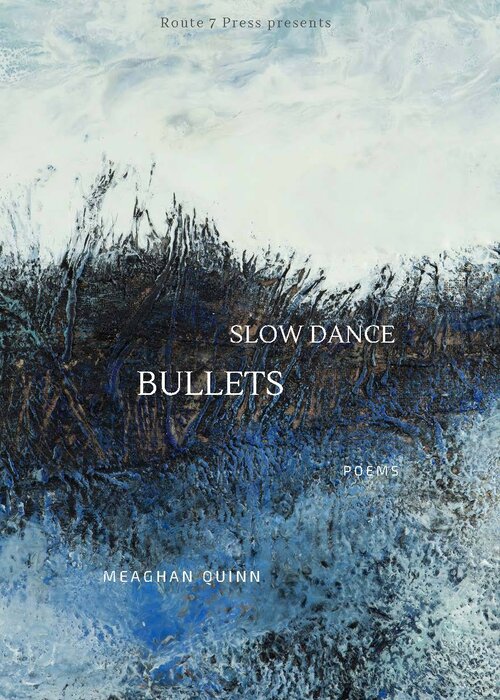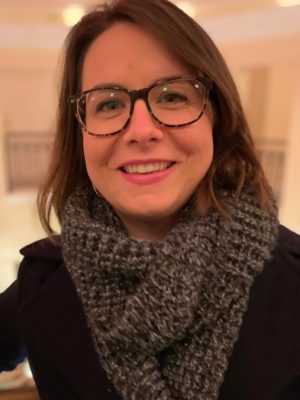Do you have a writing routine? A favorite time or place to write?
I prefer to write in the morning, caffeinated or after a meditation. When writing, I listen to one song on repeat. Typically something instrumental or fast-paced that is able to transport me. When time is on my side, I write at a local coffee shop, but most often I set aside a few hours and hunch over a moleskin or a laptop. Writing aside, a large chunk of my creative process involves ‘collecting’ – filling up a clipfile of visuals and words.
Where do your poems most often come from—an image, a sound, a phrase, an idea?
My poems tend to come from collective consciousness, tapping into a shared pain or a silencing. I think they also come from an impulse to speak on larger, universal issues but through a narrative lens. Romance, women, spirituality are my go-to subjects. Lately I’ve also been influenced by the ordinary acts of daily life, of colloquial speech, simple moments, and I try to jot down lines that might give way to a story.

Tell us a little bit about your new collection: what’s the significance of the title? are there over-arching themes? what was the process of assembling it?
The collection follows a speaker reconciling with her sexuality; there is a thirst for God, for connection, a run to and away from Catholicism. But Slow Dance Bullets is really about triggers. Childhood triggers. People and places that trigger someone to escape. The triggers we can grow comfortable with pressing. I think the title also touches on denial – of refusing to admit the structure is collapsing around you. To carry on dancing regardless of the music. I wrote most of the manuscript on and off throughout my twenties. But it really became a book once I took eight months to thoroughly revise it.
Who are your major poetic influences, your poetic ancestors, so to speak? Are these influences seen, directly or indirectly, in the new collection?
I’ll always love the Romantic Poets best. Blake, Coleridge, Keats. Sonically and spiritually, I feel connected to Gerard Manley Hopkins. His cadence excites me. Last spring I read a biography of Millay and felt re-energized by her story and sonnets. Thematically, I’m influenced by Nick Flynn, Adrienne Rich, and Kim Addonizio. The works of Judy Grahn, Sylvia Plath, Jack Gilbert, Ocean Vuong blow me away every time I revisit them. Traces of some of these writers turn up in this collection.
What are you working on now that your book is out in the world?
I’m working on part two. This second manuscript focuses more on a singular relationship and on recovery. I’m also trying my hand at writing cross-genre or a novel-in-verse. I’m hoping to take the better half of the winter to sketch out the conflict/turning point. I’m also interested in writing nonfiction pieces, articles, especially.
What art, writing, or media is moving you right now?
Interactions with the humans around me, especially those who have climbed their own versions of Calvary, move me the most. Media-wise, I’d say the coverage of the Opioid Epidemic continues to both haunt and motivate me. The intersection of verse and activism is a path I see myself going down in the very near future, if not already.
Read an excerpt from Slow Dance Bullets:
WHAT MAKES ELEPHANTS SLEEP*
You have been teaching her what it means to be thirsty.
Thirsty like right after cumming when there is only milk.
On the floor you slurp cereal wearing only jean shorts.
She sits close by slouching against the fridge frightened
by how much addiction has gutted you.
After the cereal you take a cold shower, spread out
on the cool of the kitchen tile in front of a box fan.
The fan oscillates slow as milk. Thistles of nipple hair whir.
You smash your unholy face against the tiles.
When is it going to be over — you ask
When you decide to stop — she says
When is my heart going to slow down — you ask
When you get up off the floor — she says
You pick your chin up off the tiles.
You can see the tan lines from where the sun has
stamped the bikini strings to her chest,
an imprint over the small breasts you always fumble with,
making your way back to in the dark.
When will I be iridescent — you ask
In the morning — she says — in the morning
She never asks you why you take the same thing they use
at zoos to put elephants to sleep.
*Hamilton, Keegan. Vice News: “Deadly elephant tranquilizer carfentanil is contaminating US heroin.” “Carfentanil, which zookeepers use to tranquilize elephants and other large mammal and was once used as a chemical weapon by Russia, is readily available for purchase online from manufacturers in China.”

Meaghan Quinn is the author of Slow Dance Bullets published by Route 7 Press (2019). She holds an MFA from the Writing Seminars at Bennington College. She has been nominated for Best of the Net, Best New Poets, the Pushcart Prize, and is a recipient of the Nancy Penn Holsenbeck Prize. Quinn has been featured in [PANK] and NPR Cape & Islands, and her essays and poems have been published in Prairie Schooner, Impossible Archetype, The Puritan, Off the Coast, Adrienne, Free State Review, and elsewhere. Quinn lives on Cape Cod with her girlfriend and their many books.